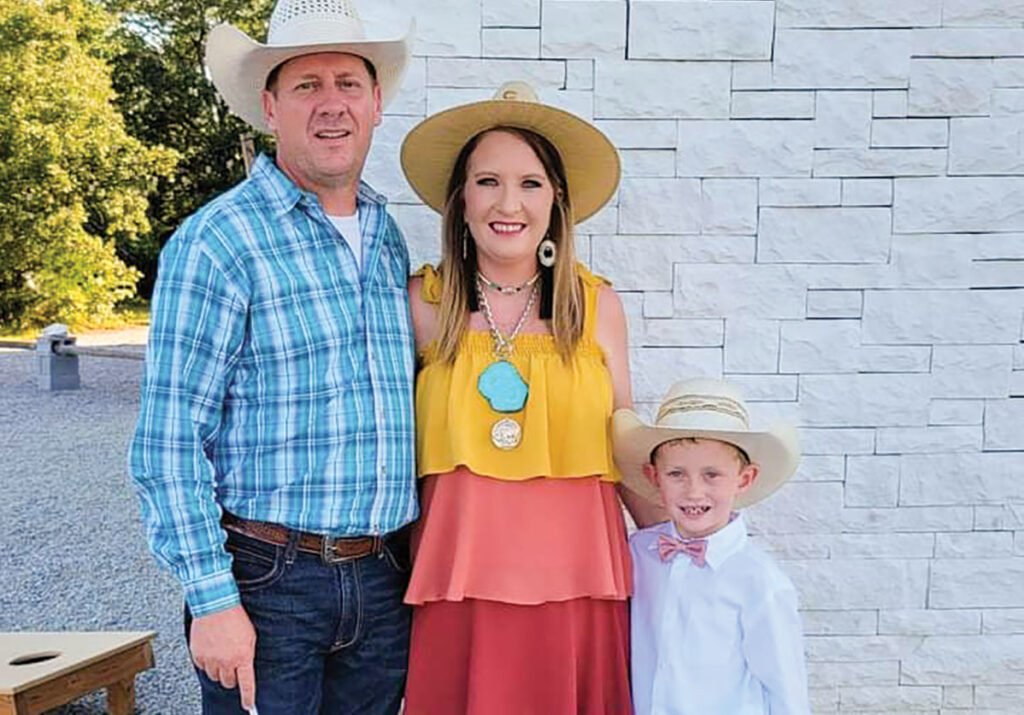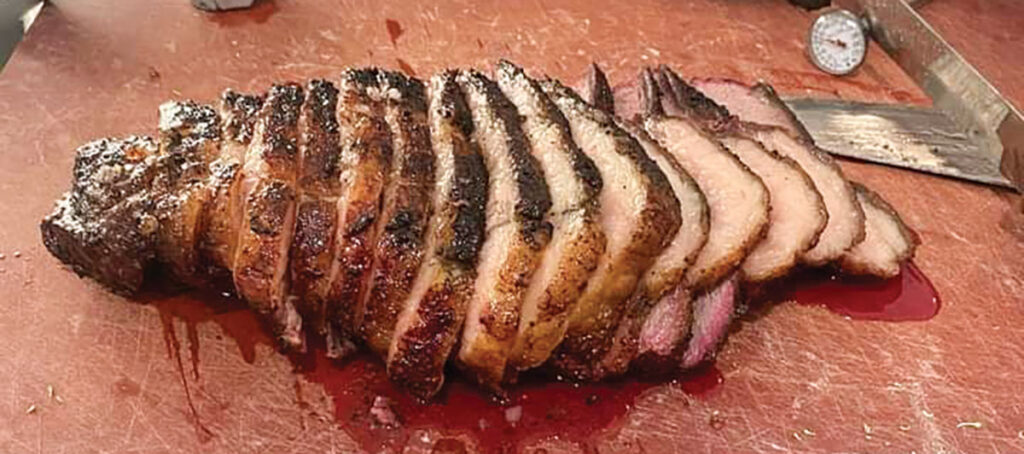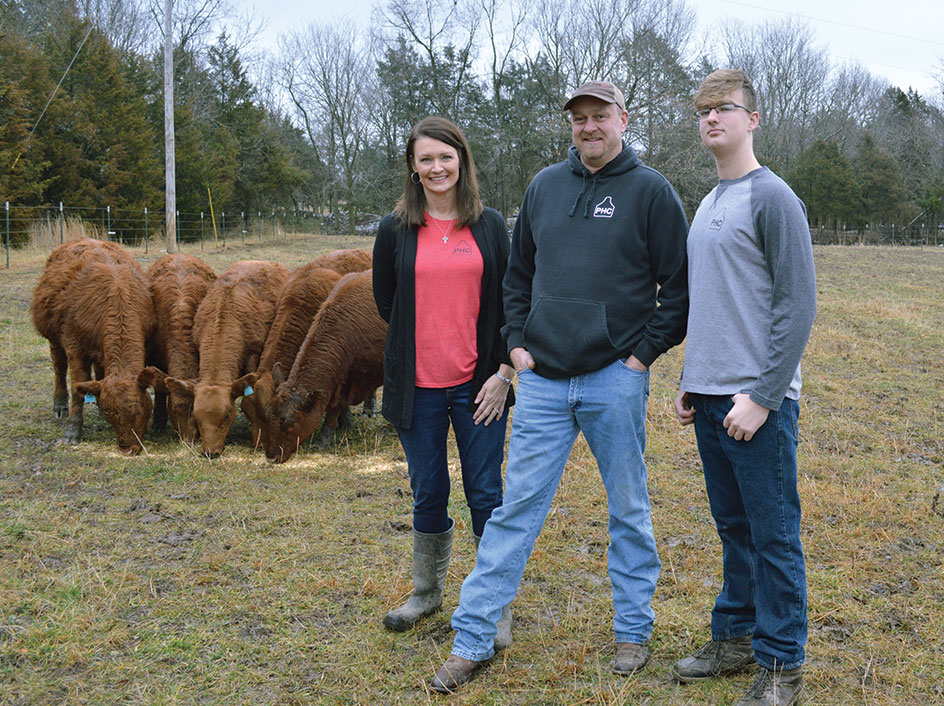
Isaac Melin became interested in meat production while in college
DIAMOND, MO. – Isaac Melin spent as much time as possible on his grandparent’s farm near the Spring River, hauling hay and working cattle.
Growing up in Avilla, Mo. he was living the rural life by default, but he credits his grandfather, John Melin, for his passion to pursue a career in agriculture and more specifically, in cattle.
Throughout his schooling he took part in 4-H and FFA while attending high school in Carthage showing Hereford cattle and later, he would go on to show them across the nation when in college. He attended junior college for one year at Coffeyville Community College in Kansas on the meat judging team. And then went on to the University of Arkansas and was part of the livestock and meat judging team while there.
During his time at U of A., he also worked in the meat lab, which is a university processing plant but a lot of what they did was harvesting meat for research yield trials. Any beef that was USDA-approved for consumer sales, they sold one day a week to the public.
“That’s where I really got the love for the meat side of the cattle industry,” Isaac states. “I had always been on the growing side of the cattle industry before.”
He learned from start to finish the process of meat processing, allowing him to observe various types of meat and what good quality meat looks like. Experience is the best teacher and for Isaac, even showing cattle taught him the best practices when it comes to feeding them out for the end product – meat.
I just really enjoyed the meat side of things,” Isaac said. “Taking a live animal and turning it into a marketable and usable product.”
After college, he was an ag teacher for a while before taking a break for six years go be a cattle buyer based out of Dodge City, Kan. He did a couple stints in other occupations but found he had to return to his passion, raising quality beef.
Coming home to Southwest Missouri was the best decision for his new family, having married his bride, Sheala, and to start building upon his dream to raise cattle.
He returned to teaching and joined the Pierce City School District as their ag teacher. Their four-day structure allows him the freedom to work on developing his stock for customer direct sales.
“It had always been a goal of mine to get back to what we are doing now,” Isaac said.
Although his place is only 20 acres with another 10 acres of pasture at his grandpa’s for back grounding cattle, with another 40 acres of hay meadow, he contemplated how to make the farm self-sufficient for his time on the limited resources of land to increase the revenue per acre. He began working with a longtime friend who raises purebred Hereford cattle via embryos for other people and raises mixed breed cattle.
They wanted to find a way to market the mixed calves to increase their value.
Selling beef wholes and halves was the first step, as well as backgrounding calves. The backgrounding operation is mostly crossbred cattle. The next set of calves that they will harvest will have a strong Hereford influence.

Isaac took the leap to get USDA-certified thanks to COVID, which made that happen sooner then he originally planned. But being flexible is part of the business and reacting to the market climate is critical.
He had always planned to offer customer direct meat so he could offer individuals the same experience of a good quality home grown beef by selling single cuts without a person having to invest in a whole or half beef.
“Last spring, we decided this was the direction that they wanted to go,” Isaac said. “We have very few momma cows and just concentrate on growing calves to deliver the best marbling and flavor.”
True to his long-time experience with the breed, Isaac still prefers Herefords.
“I’ve just always been a Hereford breeder for the quality of their meat and it just made sense that if we thought the Hereford was good enough to sell for bulls,” Isaac said. “Then they ought to be good enough to sell for meat.”
His vision had taken shape even before the pandemic, but the problem brought light to supply and demand issues making people look more locally for their meat versus the large chain stores, whose meat departments at the time were bare.
“It opened up a consumer base we didn’t realize was there before and didn’t realize that many in the public would be interested in,” Isaac said.
The biggest challenge now is projecting when the calves will be ready to process and schedule processing with very busy processing plants. Many factors can impact the growth rate of cattle and staying ahead of that to bring the meat to the customer is a constant endeavor.
“We try to work ahead and have constant conversations with our USDA processing plant,” Isaac said. “This way they know where we are and can get us in.”
Isaac often gets questions about the price of locally-grown beef verse store-bought beef, which tends to be cheaper.
“I want people it doesn’t matter whether you’re buying your meat from me or another local producer, the quality of the meat is not even apples to apples in comparison with large scale processed meat, which is cut and shipped out immediately to stores,” Isaac offers.
Isaac believes strongly in educating potential customers on the major differences in mass produced cuts of meat and locally grown meat. Aging, he said, makes meat more flavorful, more tender, less tough, easier to cut and chew the longer it hangs.
“We have customers come back and tell us what they love is the flavor and tenderness of the meat,” Isaac said. “A lot of that is the 21-day aging process and the way we feed the last 60 days with increased corn rations.”
The possibility of branching into some pork and even a storefront is not off the table in the future.
“Just want to see where God takes it,” Isaac said.
Melin beef is currently for sale at Mid-West Ag in Carthage and Whitehead Farm Supply in Anderson.
“At the end of the day I can show a person the momma cow that calf came from, show them the calf that will be harvested and how they are being fed,” Isaac states. “Being able to do that builds confidence in our meat.”







